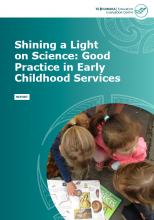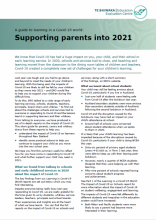Shining a Light on Science: Good Practice in Early Childhood Services
This report is the companion report to Science in the Early Years: Early Childhood and Years 1-4. This report looks at, in more depth, good practice in science teaching and learning in English-Medium early childhood education. It presents examples of good practice of science in the curriculum, from eight services identified during their ERO reviews.


